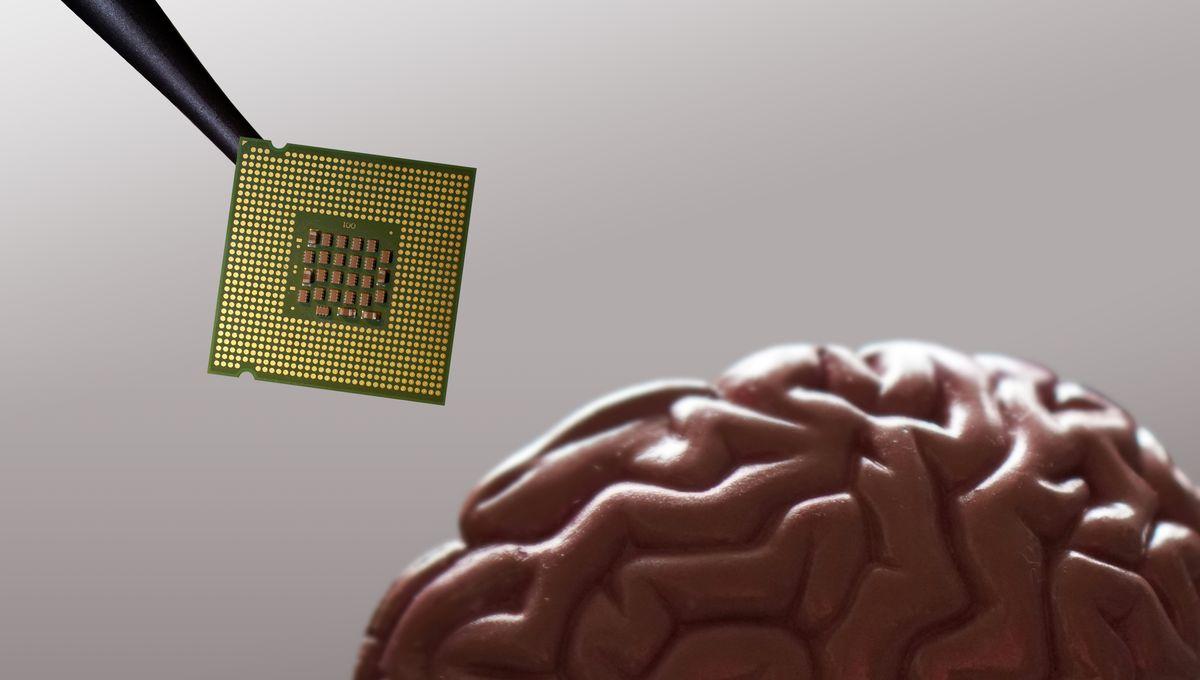-
Fil d’actualités
- EXPLORER
-
Pages
-
Blogs
-
Forums
New Brain Implant Can Decode Your Internal Monologue, Raising Fears Of Mind Reading

New Brain Implant Can Decode Your Internal Monologue, Raising Fears Of Mind Reading
Researchers from Stanford University have developed a brain-computer interface (BCI) that can decode users’ “inner speech” and convert it into words. The device successfully allowed four paralyzed patients to communicate and represents a massive breakthrough in this field, although its ability to tap into people’s thoughts raises a number of concerns about mind-reading and data privacy.
The rest of this article is behind a paywall. Please sign in or subscribe to access the full content. Previously, BCIs have been used to enable speech by monitoring neural activity in the brain’s motor cortex as users physically attempt to talk - even if they can’t actually do so. Yet this constant effort can be tiring, which is why the researchers set out to create a system capable of turning imagined sentences speech. They therefore implanted a chip into the motor cortex of four participants, discovering that attempted speech and inner dialogue appear to be represented in the same “speech hotspots” - namely the middle and ventral regions of the precentral gyrus. Consequently, the BCI was able to perform real-time decoding of patients’ internal monologues, with a vocabulary of 125,000 words and an accuracy rate of up to 70 percent. “Compared with attempted speech, the inner-speech BCI required less effort, offered improved comfort, and bypassed physiological constraints (e.g., breathing control) that slow attempted speech in people with paralysis, potentially enabling a path forward for speech BCIs to achieve speeds comparable to normal speech,” write the study authors. Crucially, this marks the first successful attempt to read the brain activity of people while just thinking about speaking. “However, inner-speech BCIs may require additional design considerations to prevent accidental “leakage” of inner thought into BCI output,” admit the researchers. For instance, while the purpose of such a system may be to decode speech, the fact that it has to peer into a user’s stream of consciousness in order to do so poses some serious privacy issues. “The value of [mental] privacy is that it provides a place where we can play around with ideas without revealing them to others, so it's very core to our identity,” says Matthew Liao, director of the Center for Bioethics at New York University’s School of Global Public Health. “Right now I'm thinking of something, but I don't say it, because I have a mental filter. So the question is whether they can build some sort of BCI filters that function similarly,” he told IFLScience. In their experiments, the study authors noted that the BCI picked up traces of participants’ inner thoughts even when they were engaged in tasks that didn’t involve trying to speak. The researchers therefore introduced a password - in this case, “chittychittybangbang” - which the patients could imagine in order to turn the system on and off. And while this proved successful, a range of other issues regarding the use of mental data remain unresolved. “These technologies require collecting a lot of brain data and monitored loop systems - so what are companies going to do with that data?” ponders Liao. “Something that's trained on your brain data, that really knows about your personality and your history, could be used to create really convincing duplicates of you. So how are companies going to safeguard that data so that it doesn't fall into wrong hands? And what are companies themselves going to do to make sure that they don't misuse the data?”, he continues. For now, it’s unlikely that anyone is going to be virtually cloned using a BCI as the technology is still in its infancy and this study represents proof-of-concept research rather than a finished model. Over the coming years, the sensitivity, complexity and accuracy of the system will need to advance significantly before devices like this can actually be used to help people talk. And while Liao accepts that solutions like this are likely to be hugely beneficial to the quality of life of many people who are unable to speak, he warns that “we need to be proactively protecting people's rights” before we go too far with this sort of technology. “That means having good regulatory policies in place”, he says. The study has been published in the journal Cell.


